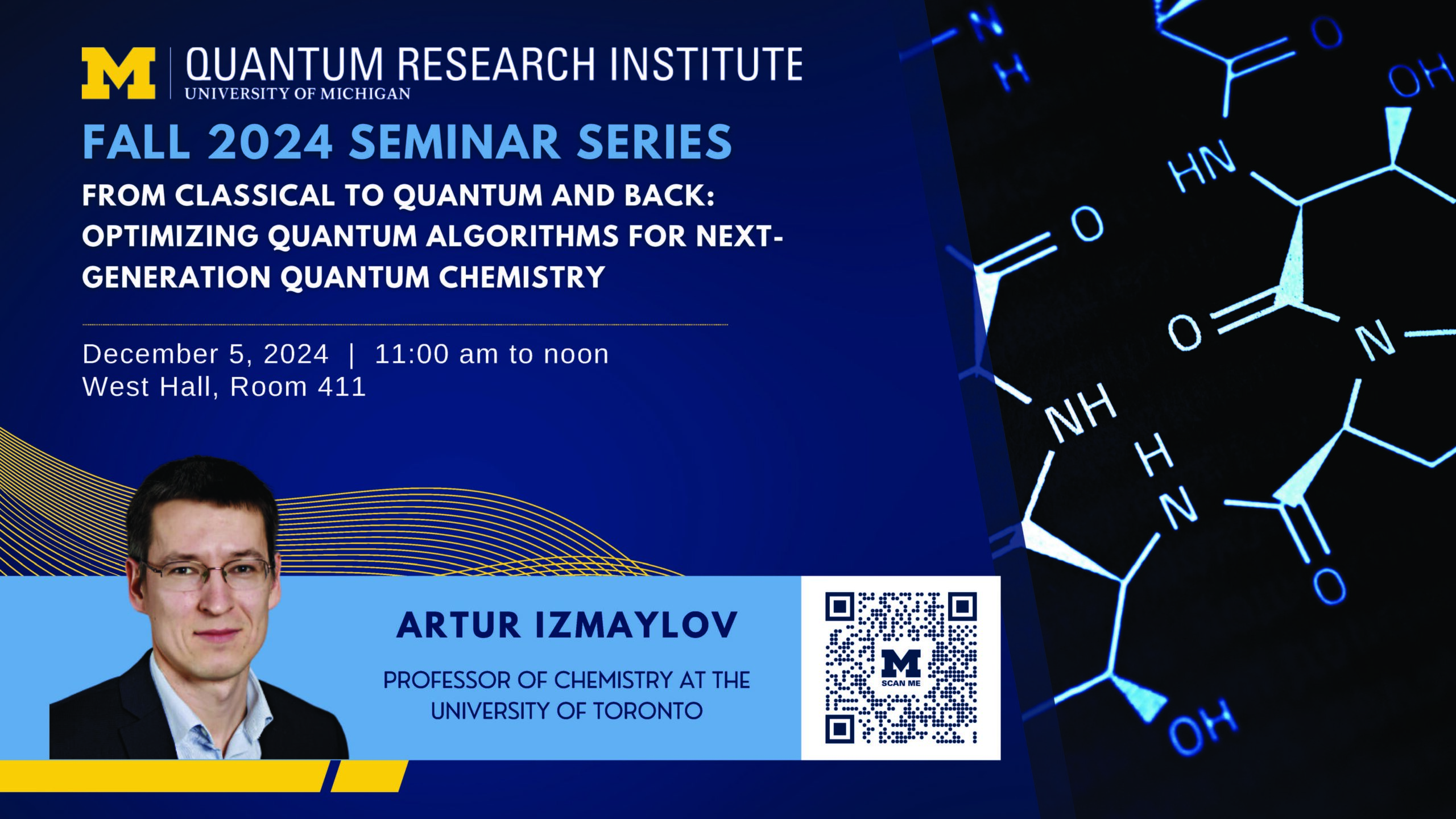Quantum Science Seminar
Quantum Research Institute Seminar | From Classical to Quantum and Back: Optimizing Quantum Algorithms for Next-Generation Quantum Chemistry
This event is free and open to the publicAdd to Google Calendar

Abstract:
Quantum chemistry problem is one of the attractive targets for demonstrating the quantum advantage of quantum computing technology. Having strongly correlated systems as the main target, I would like to discuss what new classical computing techniques need to be developed to help quantum computing algorithms to solve the electronic structure problem. Encoding the electronic Hamiltonian in a second quantized form on a quantum computer is a complex task, with efficiency challenges that can significantly impact the overall performance of quantum solutions. To address these challenges, we propose partitioning the Hamiltonian into a sum of fragments that can be diagonalized through rotations derived from small Lie groups or the Clifford group. These partitions simplify algebraic manipulations critical for circuit compilation and quantum measurement processes. I will demonstrate how this Hamiltonian partitioning strategy enhances the efficiency of key quantum chemistry algorithms, including the Variational Quantum Eigensolver and Quantum Phase Estimation.
Bio:
Artur Izmaylov is a Professor at the University of Toronto, with appointments in the Departments of Chemistry and Physical and Environmental Sciences. He specializes in theoretical and computational chemistry, focusing on the development of innovative quantum chemistry methods. His research covers quantum dynamics, electronic structure theory, and leveraging quantum computing to tackle challenging quantum many-body problems. These problems include determining electronic states and properties of strongly correlated molecules and solids, modeling non-adiabatic molecular dynamics, and predicting non-equilibrium stationary states of open quantum systems. Prof. Izmaylov has made significant contributions to efficient state preparation techniques, such as Qubit Coupled Cluster theory, and advanced quantum measurement strategies. His work has also provided critical insights into the role of geometric phases in non-adiabatic dynamics. These achievements received prestigious awards, including the Sloan Fellowship (2015), Ontario Early Researcher Award (Canada, 2017), Tom Ziegler Award (Canadian Society for Chemistry, 2019), Journal of Physical Chemistry Lectureship Award (ACS, 2019), and the Google Quantum Research Award (2019). His group currently focuses on developing error-corrected quantum algorithms and exploring quantum-inspired techniques for classical computation.
 MENU
MENU 
